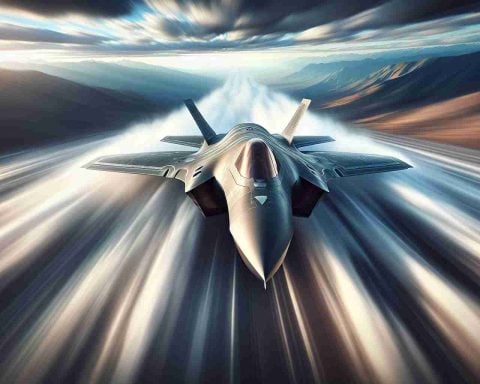Turkey is on the verge of a breakthrough in its pursuit of acquiring the advanced F-35 fighter jets from the United States. After years of diplomatic deadlock and defense challenges, Turkish Minister of National Defense, Yaşar Güler, shared optimistic news during a critical session of the Grand National Assembly of Turkey on November 26. He indicated that the US might be open to delivering the coveted F-35 jets, provided negotiations move forward positively.
Historic Setback: Turkey originally purchased six F-35 aircraft, but the delivery was halted following its suspension from the F-35 Joint Strike Fighter Program in 2021. This decision came after Turkey’s controversial procurement of the Russian S-400 missile defense system, which raised alarm within NATO and prompted U.S. concerns over security.
However, according to Güler, the U.S. is now reconsidering its stance after witnessing Turkey’s advancements in its domestic defense projects. Highlighting Turkey’s progress with the KAAN fighter jet, Güler mentioned that the U.S. may be willing to finalize the F-35 deal, to which Turkey has officially renewed its offer.
Geopolitical Dynamics: Despite this hopeful development, the path forward remains uncertain due to ongoing geopolitical complexities. Discussions between the U.S and Turkey continue, but concrete steps toward Turkey’s full re-entry into the F-35 program remain elusive.
Meanwhile, Turkey has opted to modernize its air capabilities independently, notably scaling back on a sizeable F-16 acquisition plan and updating its current fleet through domestic efforts. Additionally, in a surprising turn, the U.S. has relaxed its objections to Turkey’s operational use of the S-400, signaling a potential shift in bilateral defense relations.
Could Turkey’s Defense Innovations Outpace the F-35 Deal?
Turkey’s pursuit of the F-35 fighter jets has taken a fascinating turn, with the U.S. sending new signals that could reshape the future of military technology and defense collaborations. This shift not only hints at a thawing in U.S.-Turkey relations but could also influence global defense strategies.
Potential Shifts in Defense Collaborations: While the U.S.’s renewed openness to discussion is promising, Turkey’s advancements in indigenous technologies are noteworthy. The development of the KAAN fighter jet exemplifies Turkey’s growing commitment to self-reliance in defense. This progress could catalyze a strategic pivot away from traditional partnerships, forcing countries worldwide to reassess the balance between collaboration and self-sufficiency in defense technologies.
The Dual-Edged Sword of Independence: Turkey’s modernization efforts, particularly the focus on enhancing existing jet fleets and scaling back some foreign purchases, showcase the benefits and challenges of defense independence. While fostering domestic innovation reduces reliance on foreign powers, it can also result in slower technological integration and require substantial financial outlays. Is self-reliance in defense feasible for nations with smaller economies?
Controversy of Balancing Alliances: NATO’s concern over Turkey’s S-400 acquisition underscores the complicated dance between strategic alliances and national interests. The U.S.’s softened stance on the S-400 system suggests an intricate geopolitical chess game, where defense ties and political leverage continuously collide. How will other NATO members perceive this perceived shift in U.S. policy, particularly amid rising global tensions?
Questions Arising:
– Could Turkey’s defense strategy inspire a broader trend towards national defense autonomy?
– How might U.S.-Turkey relations influence NATO’s cohesion and strategy?
– What are the risks of domestic defense focus for Turkey in the long run, compared to the benefits of global partnerships?
Interesting Developments to Watch:
– Turkey’s journey towards defense independence can significantly impact emerging technologies such as AI and drone warfare, pushing for more versatile and integrated systems.
– With geopolitical tensions simmering, this development may usher a new era in which technological collaboration coexists with strategic independence, reshaping the defense industry landscape.
In conclusion, while the F-35 saga unfolds, Turkey’s focus on self-reliance and advanced technology development could serve as a model—or a cautionary tale—for other nations grappling with similar defense and diplomatic challenges. This shift towards a balanced mix of partnerships and self-initiated progress may inform the future trajectory of defense innovations.
For more information on technology and defense updates, visit Defense.gov and TechCrunch.















